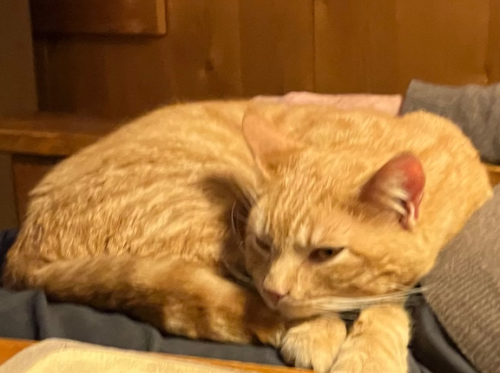Tim Urban, who writes the popular blog, Wait But Why, has a new book out. I bought What’s Our Problem: A self-help book for societies immediately.
With a title like that, of course I did. And he did not disappoint.
Among the myriad potential memes and memorable aphorisms running through his book, the statement, “Trust, the critical currency of a healthy society, is disintegrating” got me thinking back to my years in Kazakhstan.
“Trust, the critical currency of a healthy society, is disintegrating.” Tim Urban
When I was living in Kazakhstan, thirteen years after their independence from the former Soviet Union, they had no checking accounts. There were cell phones galore, and banks that lent credit (at exorbitant rates) and offered ATM machines. But they had no credit cards or check books. Why? I wondered.
As I wrote in my memoir of that time, it had to do with the lack of trust the people had in their institutions – or the institutions had in the people? – Who could blame them when the entire infrastructure of their Soviet society, had just crumbled before them?
Trust enables us to put our money into banks, to receive loans, to use credit cards, to bother with long range planning; even basic cooperation requires some element of trust. I watched in dismay during our recent pandemic as trust in our own Center for Disease Control (CDC) wobbled and professionals, experts in their field, were summarily ignored or mocked. If Tim is right, if trust in our fellow man is disintegrating, with what kind of society will that leave us?

In his first few weeks with us, I watched Aslan, our new cat, tentatively test everything in our home. For the most part, he sniffed. Sometimes he tapped with his paw.
We humans have our own form of sniffing and pawing, don’t we? While you’ll not see me sniffing a new found friend, you will see me going slow in a new relationship. I want to be certain I’m not missing any red flags.
Wouldn’t that be helpful if we could see a red flag waving before us?

Alas. We are on our own here, with our own life experience our guide.
For me there’s safety in the authenticity, dependability, genuineness, reality, and truth of what I trust. I relax when I believe I can trust. But trust is always built on previous experience, starting in infancy of course.
Of course, I reserve the right to discover I’m wrong. Discovering I misplaced my trust will become one more piece of information to help me decide to trust in the future.
Which may be why I, personally, will never bungie jump. I have NO EXPERIENCE to help me feel safe. No thank you.
How about you? How do you experience trust? And do you agree with Tim Urban?
Pamela
Great question. I’m almost worried about how I trust, because I “trust” my instincts/gut/intuition when I meet a person and when I make a decision about something. I believe that inside, if we listen, we know who and what we can trust.
Pamela recently posted…Brotherly Love
Janet Givens
Thanks Pam. Trusting our instinct is what I imagine we all do; the question is how do learn to trust our instinct? I still think we do that through experience. You know: crying infants get responded to and learn to trust in others to meet their needs. I think those of us who trust easily, had a better foundation than those who have trouble trusting. Was it Maslow’s Hierarchy of Needs?
We’re lucky, you and I.
Janet Givens recently posted…Trust: A conversation
Marian Beaman
Great post, Janet. You may know, I wrote an entire book on trust in marriage, a trust that sometimes wobbled.
Like Pam, I use intuition, a “gut” feeling, to judge a person on first meeting. Only time will prove me right or wrong.
I trusted your advice on peeling warm eggs and it didn’t work out for me. HaHa!
Marian Beaman recently posted…My Fair Lady Advises Mennonite Daughter
Janet Givens
Oh no! I wonder if altitude makes a difference with the egg thing. I’ve not had one poorly peeled egg since I ran that video. How fresh where your eggs? (though according to my theory, that shouldn’t make a difference)
See my comment to Pam above about Intuition. It’s important, isn’t it. It guides us in many ways. AND, it’s built on a series of our successful experiences following it. Our intuition must be nurtured, trained even. Geesh, that sounds like parenting. Hmmm : another post?
Janet Givens recently posted…Trust: A conversation
Terri Lyon
I tend to trust until it is shattered. And then I don’t give it a second chance. Love your new kitty!
Janet Givens
Aslan’s been great, so far, Terri. Thanks. He tends to expect us to keep all our counters and table tops empty — or else. If we need a pen, we now just look first on the floor. He’s got us well trained.
As for that loss of trust, I’m glad you brought that up. I think that’s what we are going through as a country today. Certainly, that’s how I took Tim Urban’s statement. So, how does one go about regaining the trust that’s been lost. We know it can be done; we know it must be done. How does one begin?
Another new post?
Janet Givens recently posted…Trust: A conversation
Darlene Foster
Your new kitty looks very sweet. I am a very trusting person and am devastated when that trust is betrayed. But I realize that happens from time to time and I’m still ready to give almost everyone a chance. I do also recognize warning signs though.
Darlene Foster recently posted…Thursday Doors: The Isle of Arran
Janet Givens
That’s such an individual thing, isn’t it Darlene — giving someone’s who’s broken our trust a second chance. I don’t think I’m as gracious as that. I need to see behavior match the words. Over and over again. I imagine you grew up surrounded with reliable and trustworthy people. And you share that sense of safety with the children who read your books. What a gift you offer.
Janet Givens recently posted…Trust: A conversation
Frank Moore
At the risk of being labeled sexist, in my experience women seem much more capable of accurately assessing who they can trust and who they can’t. I don’t know whether it’s because women, in general, are more perceptive and discerning with regard to relationships, or if it’s that men just aren’t inclined to invest the time necessary early in a relationship to make such assessments. Are men more lackadaisical in their approach to relationships because we’re less intuitive? Or are we just less in touch with our feelings and gut instincts when it comes to relationships?
Janet Givens
I don’t think you’re being sexist Frank. I think looking at gender differences is worthwhile. And something I hadn’t thought of. So, I thank you. What comes to mind is the simple difference in relative strength. You make a bad decision on a blind date, at worst you’re embarrassed or bored or feel used. If I’d made a bad decision …. It could have turned out much worse. Maybe men don’t need to think about trust so much because they aren’t as vulnerable? I really don’t know. Though I do think whatever one’s gender identity, we all benefit when we know we are in the company of people we can rely on to be what they appear to be. Thanks for getting me thinking.
Janet Givens recently posted…Trust: A conversation